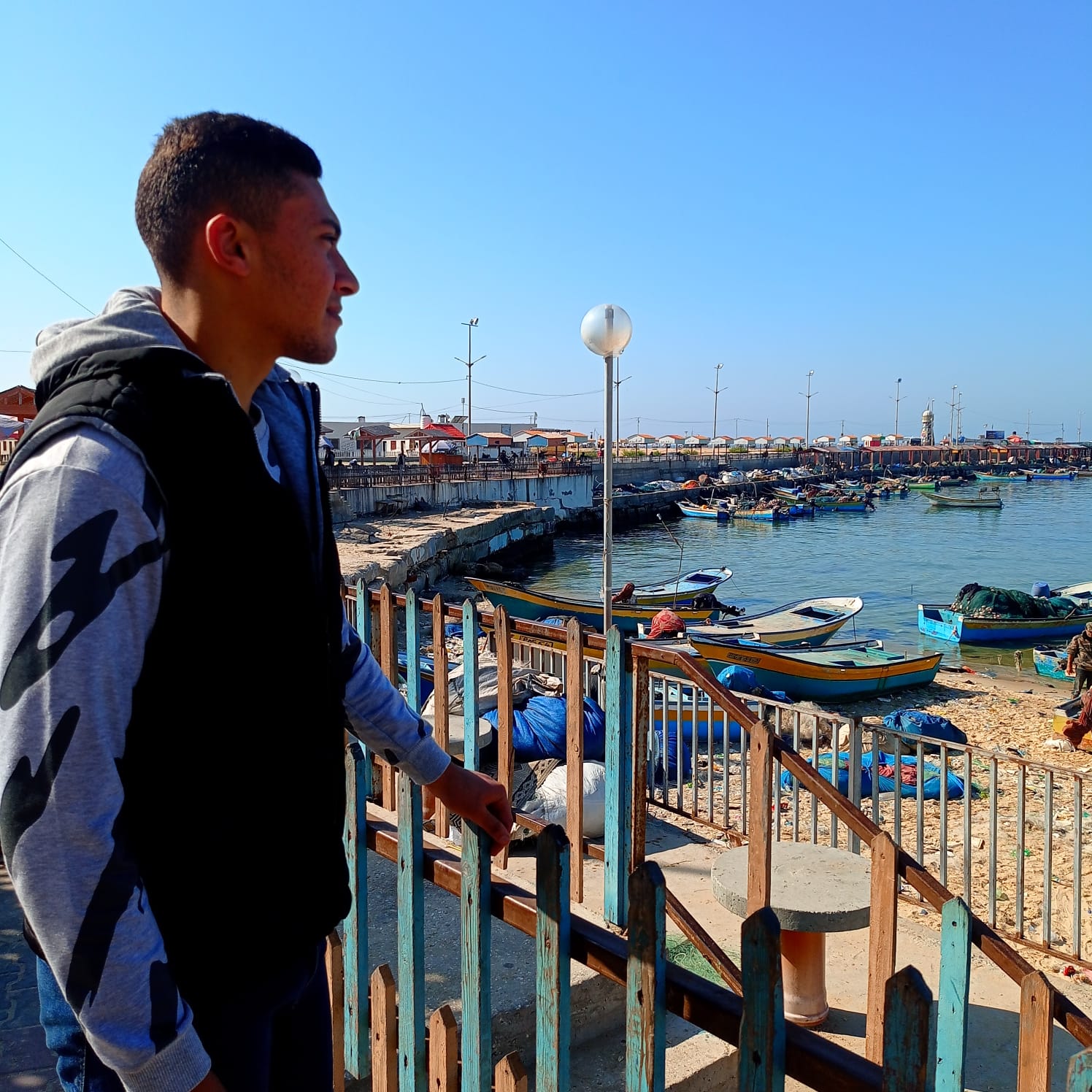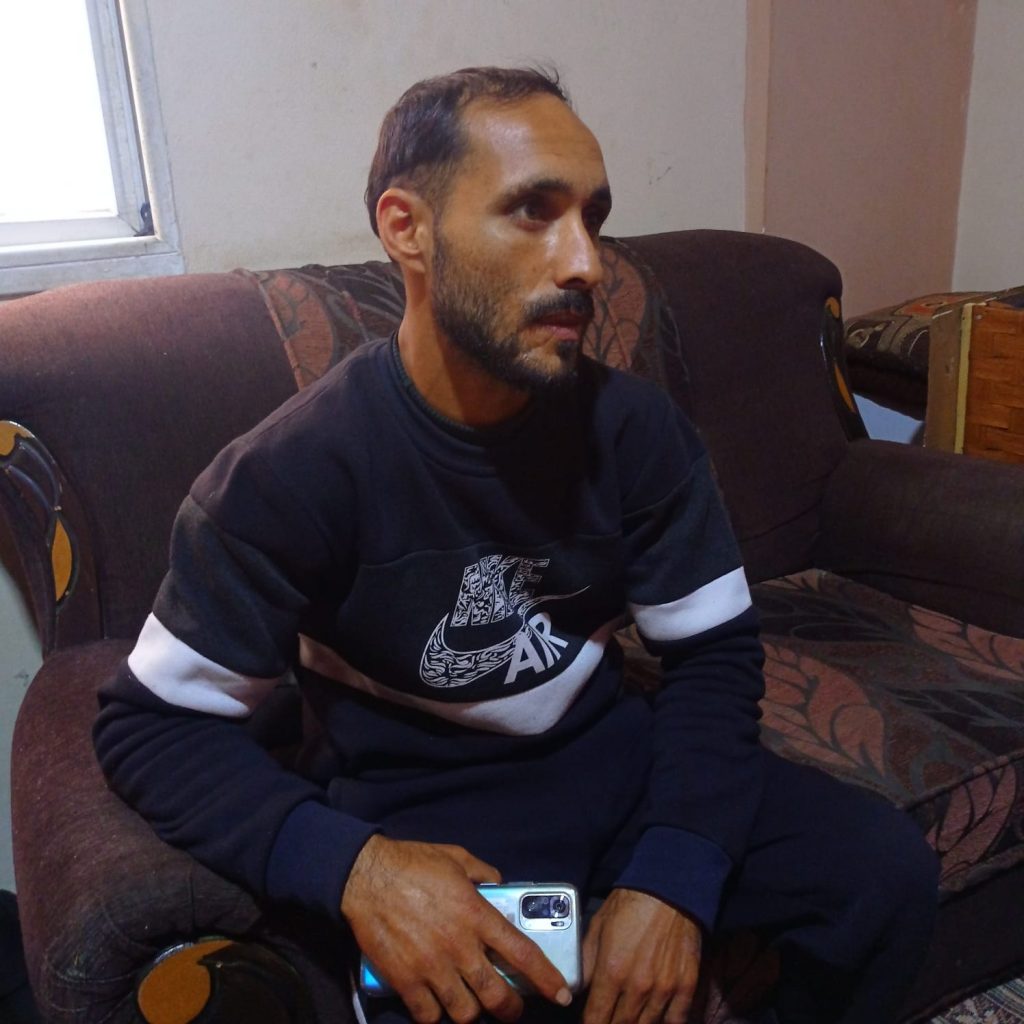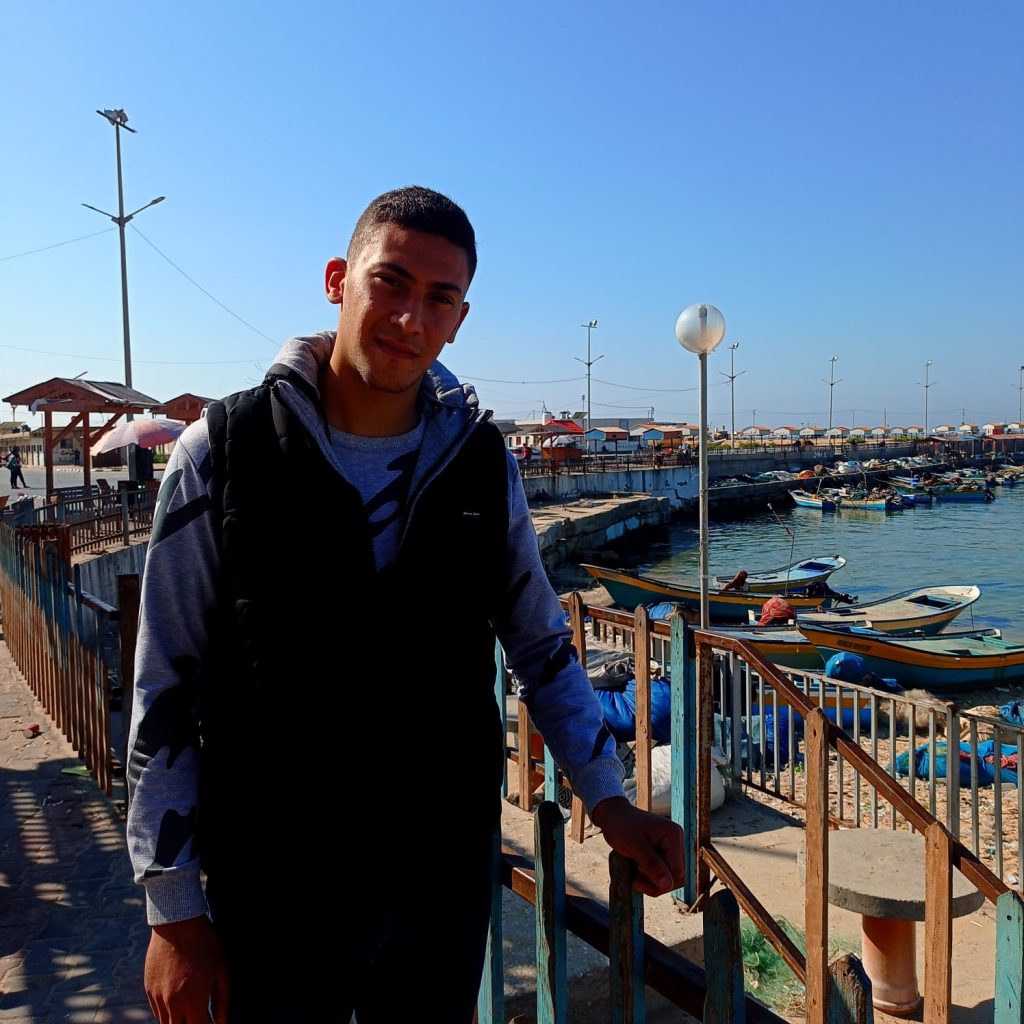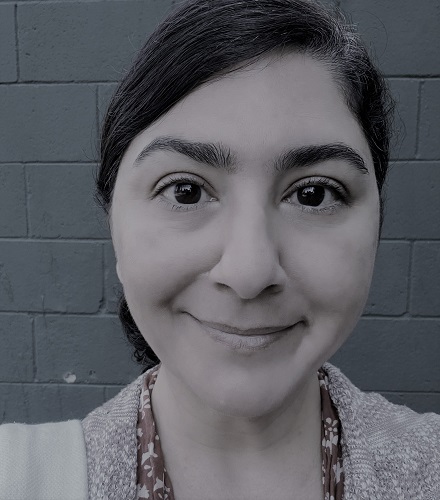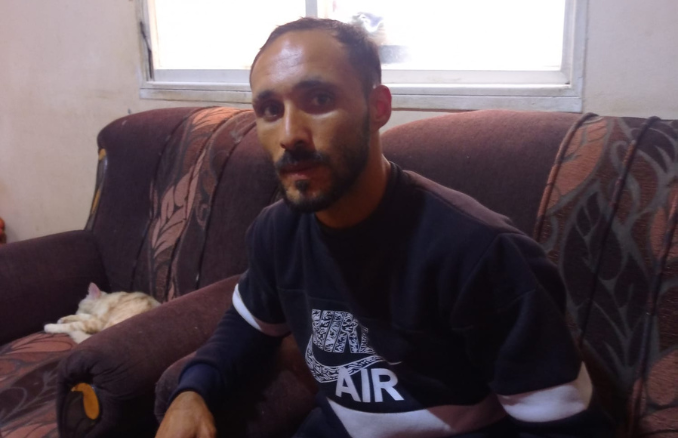
“I hugged the engine. This engine is more precious than our son and if it is gone, I can’t replace it with another one.”
Four boats managed to escape. Abdelrahman and another boat could not escape in time. Israeli forces arrested the boys, confiscated their fishing boats, and seized their GPS devices without explanation. Without GPS devices, they cannot locate their ships or the location of their fishing nets.
The loss of Abdelrahman’s fishing boat was especially traumatizing as it once belonged to his own father before the Israelis murdered him. “I saw them take my precious boat in front of my eyes and I could do nothing. It is mine. I have the last word on it, but I was helpless,” he expressed with misty eyes. “After my father was killed, I borrowed money to buy an engine and a net.” The Israeli forces never returned his boat or compensated him for the illegal confiscation.
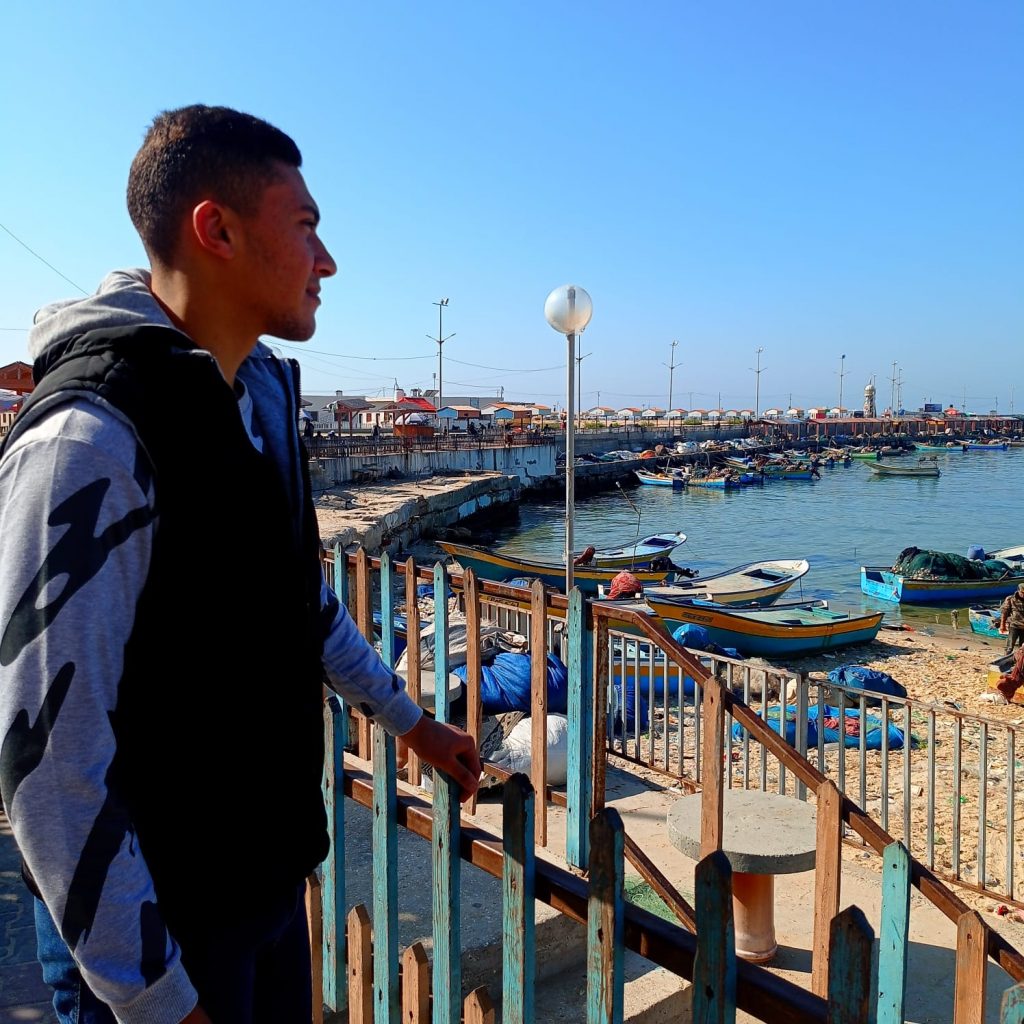
Abdelrahman and three other fishermen were arrested and imprisoned in Ashdod port. Their hands and legs were forcefully shackled from arrest until release.
“Mohamed Tulbah was slapped in the face for telling the soldiers, ‘I need to sit straight due to pain from the platinum in my leg’,” Abdelrahman said.
They were released ten hours later. However, Abdelrahman lost his boat and his only source of income.
“Fishermen want to live in peace. When I go to the sea, I only think about one thing: my livelihood. We don’t think about Israelis; we just want to eat,” explained Abdelrahman.
Fishing in a Prison
During the same incident, fisherman Zayed Taroush, 31, was assaulted by Israeli officers and arrested. His boat and fishing equipment were confiscated.
Zayed has two children and is expecting a third. He lost his source of livelihood as a result of his arrest. “When I watch videos about fishermen in other countries, my heart cries. Why can’t we fish peacefully and freely like them?” Zayed observed.
Zayed’s father, also a fisherman, promises, “I will not leave my son. He, his wife, and his children eat from our same dish.”
Zayed adds, “My 7-year-old son, Jamal, told me not to go fishing again but I can’t leave the sea. That is all I know.”
He was also imprisoned for six months in 2017 without charge.
“We are imprisoned in the vast sea. The zone is too small and crowded with many fishermen in Gaza,” the father complained. “The fisherman is like a sparrow. If the sparrow is in a cage, it cannot bring its livelihood.”
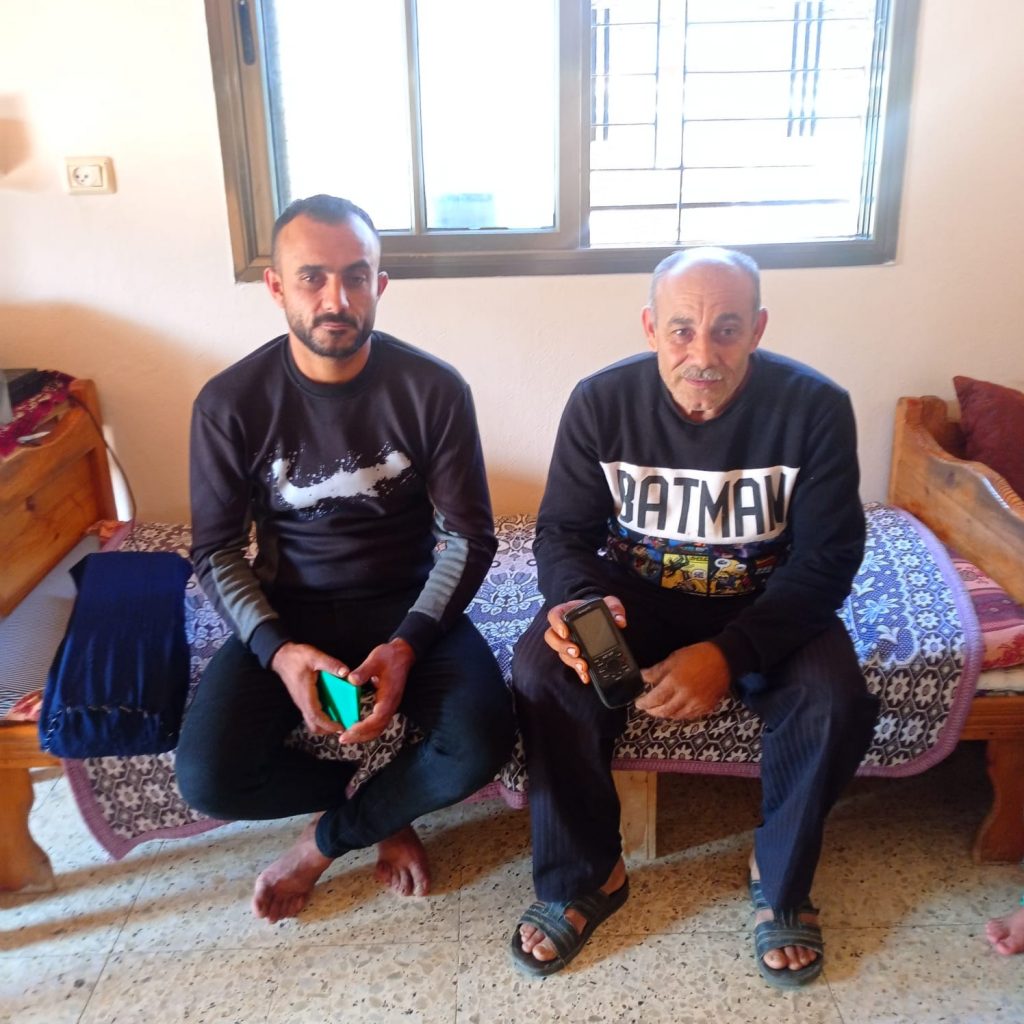
Zakarya Bakr, head of the Fishermen Union in Gaza, told PC, “The average monthly income for fishermen is $146 USD to $175 USD meaning the daily average is $6 USD. This represents one-fourth of the average monthly income for fishermen in 2006 which was $439 USD.”
“During 2022, Israeli forces shot at fishermen 380 times. Fifty-nine fishermen were arrested with four still imprisoned. Twenty-five fishermen were injured. Twenty-two boats were taken and destroyed either completely or partially,” Bakr reported.
Mohammed Abuhashem, a legal researcher at the Palestinian Centre for Human Rights, told PC, “Enforcing a fishing blockade and targeting fishermen with open gunfire and arrest is a clear violation of the International Covenant on Economic, Social and Cultural Rights (ICESCR) and the Geneva agreements.”
Abuhashem continued, “Arbitrary restrictions on a fishing zone are collective punishment amounting to a war crime. Moreover, even when Israeli authorities enforce such a discriminatory fishing zone, they must use proportionate power. Israel’s violation of these rules is a war crime as the fishermen are unarmed civilians and there is no evidence that they posed a threat to an Israeli soldier’s life.”
This story is co-published with Palestine Chronicle.


